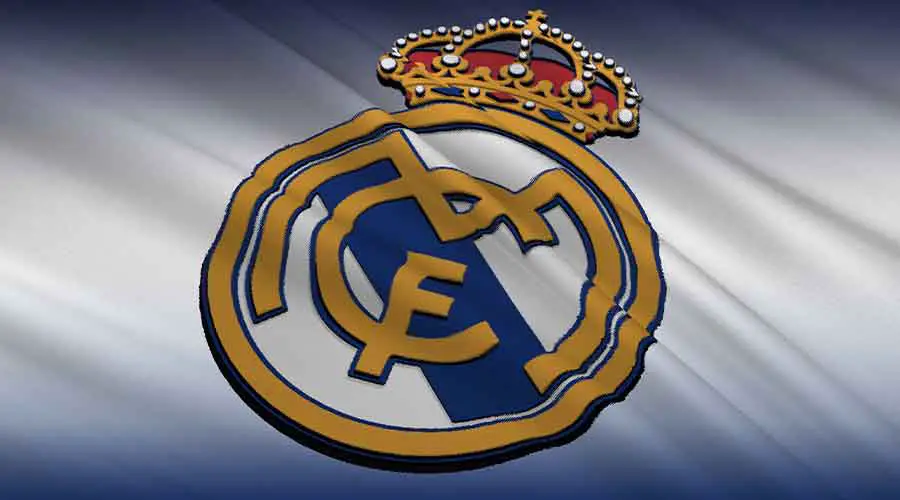Why is Real Madrid Called ‘Real’?
The Story Behind the “Real” in Real Madrid
Have you ever caught yourself in the middle of a thrilling Real Madrid game, your eyes glued to the screen, and suddenly wondered, “Why is it called ‘Real’?” If you have, then you’re not alone! The name of this illustrious club, often shrouded in a halo of royal mystique, has puzzled many a soccer enthusiast. So let’s journey through the annals of history to uncover the “Real” reason behind the name.
A Royal Touch to Spanish Football
There’s no need to have a Spanish dictionary at hand. The word ‘Real’ translates directly to ‘Royal’ in English. So, in essence, we’re talking about ‘Royal Madrid’. Now, isn’t that majestic? But what’s the royal connection? Well, the roots of the “Real” story reach deep into the Spanish royal and political life of the early 20th century.

The “Real” Birth of Real Madrid
It all started when Madrid Football Club came into being in 1902. It wasn’t until 1920, however, that the club underwent a royal transformation. Enter King Alfonso XIII. A passionate football fan, the king awarded the honorary title ‘Real’ to the club, and thus, ‘Real Madrid Club de Fútbol’ – or Real Madrid, as we affectionately know it today – was born. To top it all off, the club was also permitted to incorporate a royal crown into its emblem, further enhancing its regal persona.
The “Real” in Other Spanish Clubs
Real Madrid is not alone in carrying the ‘Real’ prefix. This royal distinction graces several other clubs within the Spanish leagues, including Real Sociedad, Real Betis, and Real Zaragoza, just to name a few. This royal stamp was traditionally bestowed by the Spanish royal family in exchange for titles like ‘Honorary President,’ forming a unique symbiosis between football and the monarchy.
King Alfonso XIII, the reigning monarch from 1886 to 1931, played a pivotal role in this royal alliance. A devout football fan, he conferred the ‘Real’ title on several clubs, with Real Sociedad being the first in 1912. Real Madrid, interestingly, was among the last to receive this royal honor from King Alfonso.
An Exception to the Royal Rule
You’d be mistaken to think that all Spanish clubs jumped at the chance to receive the ‘Real’ prefix. The political affiliations and backgrounds of some clubs meant that they were either unable to receive the title or simply didn’t want it. Case in point: Barcelona, Real Madrid’s fierce rivals. Known for their pro-Catalan independence stance, Barcelona’s socios in Catalonia would likely have declined the ‘Real’ title even if it had been offered.
Beyond the “Real”: A Glimpse at Real Madrid’s History
Though the addition of ‘Real’ to its name added a majestic aura to the club, it’s only one part of its rich history. Real Madrid has stood as a symbol of Spanish soccer prowess since its inception. Owned and run by its members or socios, the club has witnessed an impressive roll call of legendary players grace its field, from Zinedine Zidane to Cristiano Ronaldo.
However, the journey hasn’t always been smooth. The club, along with others like Barcelona, has faced significant financial challenges, which notably led to the controversial attempt to form a breakaway European Super League in 2021.
In Conclusion: A True Footballing Royalty
So there you have it – the next time you find yourself engrossed in a Real Madrid match, remember that you’re witnessing more than just a football game. You’re experiencing a slice of royal history being enacted on the pitch. Real Madrid, with its regal moniker, stands as a testament to the enduring bond between the sport of football and the Spanish monarchy.
The “Real” Legacy
From its inception to its role in shaping contemporary soccer, Real Madrid carries a legacy that is intricately woven into the fabric of Spanish history. And it’s not just about the club’s royal title. Real Madrid, with its iconic all-white kit, earning them the nickname Los Blancos (The Whites), has been instrumental in shaping the world’s perception of Spanish football.
The “Real” Impact
Real Madrid isn’t just a club – it’s an institution, an embodiment of the ‘Real’ spirit of football. The club’s royal roots have had a profound impact on its ethos, its identity, and its standing in global football. It’s no wonder that fans across the world see Real Madrid as footballing royalty.
The name ‘Real Madrid’ is more than just a title. It’s a statement, an announcement of the club’s majestic presence on the global stage. Every time the team steps onto the pitch, they carry with them a legacy of royal approval, a testament to their place in the annals of footballing history. So, here’s to Real Madrid – long may they reign in the royal court of football.
